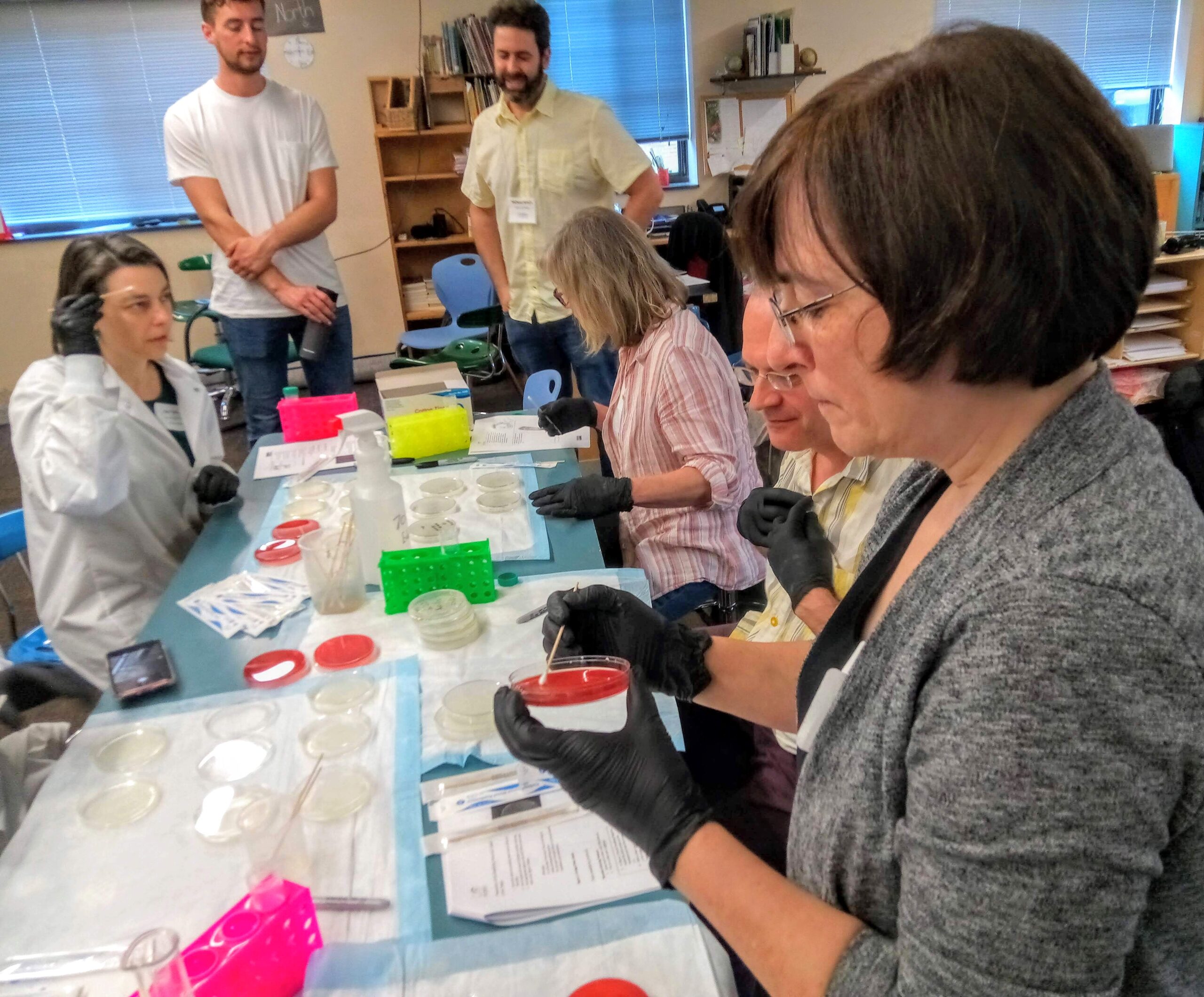It was June, and although school had recently ended, the learning continued. Leonardo Medina, a teacher at Humanities & Leadership Development High School in Lawrence, was captivated by AceraEI’s professional development workshops in gene editing and microbiomics, and felt his students will be excited about the new units next school year.
“The activity and discussion about CRISPR generated many questions that did not have specific answers, and in many ways that replicates the way scientists work,” he said. “It’ll be very rewarding to see students buy in and engage themselves in the lab activity while they develop a scientist mindset.”
Medina was one of about 25 local high school science teachers who came to Acera to edit genes using CRISPR and swab their own foreheads to culture their skin microbiome. The goal – deeply connected to AceraEI’s mission to reinvent life sciences education – is for the teachers to bring these cutting edge curriculae to their own classrooms.
The three-day and two-day intensive workshops were part of a series of trainings in Life Sciences. The curriculae – developed and pilot-tested at Acera – included hands-on experiments and guidance on how to answer commonly asked questions about the units. As a result of this training, more than 1,000 public school students will soon apply CRISPR to edit a gene or better understand their skin microbiome in their own high school science classrooms.
The workshops were funded through recent $50,000 grants from both the Amgen Foundation and Bristol-Myers Squibb. With additional funding, AceraEI will be able to offer ongoing support to implement the science labs that teach 21st century skills, and release new units which, cumulatively, can reinvent how high school biology is taught.
Gene editing and Microbiomics are two of nine units developed by AceraEI to reinvent high school biology. Future funding will support the expansion of our life sciences teacher trainings to include the full, year-long curricula, engaging students in cutting-edge biology and fostering the next generation of innovators and scientists.
“As a science-driven organization, we are committed to investing in STEM programs to help pave the way for the next generation of scientists, who may one day be on the brink of their own ground-breaking discoveries.” – Saurabh Saha, senior vice president and global head of translational medicine at Bristol-Myers Squibb.
“The pace of progress in our understanding of biology is astonishing and has clear and direct implications to how our students learn the subject. Together we are inspiring the next generation to think big, ask challenging questions, and explore potential answers.” – Eduardo Cetlin, president of the Amgen Foundation.

